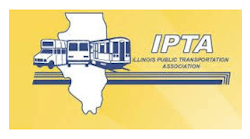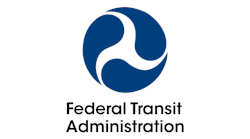Delays in Payments From the State of Illinois Cause Transit Shutdowns
Delays in payments from the State of Illinois have caused the shutdown of a western Illinois transit system and threaten to shut down others over the next several weeks. More than $156 million is owed by the State to the Downstate Public Transportation Fund, which accounts for transfers that have been directed monthly since February. 56 urban and rural public transportation systems downstate receive operating assistance through the Downstate Public Transportation Fund, which is funding derived by a portion of the state sales taxes collected in the service areas of each public transportation system. Downstate public transportation systems provided a combined total of more than 41.5 million rides in FY16.
Illinois Public Transportation Association Executive Director Laura Calderon said, “The public transportation systems across the state provide critical services to some of the state’s most vulnerable populations. Downstate particularly, the bulk of the riders are elderly, persons with disabilities and the low income population, who are relying on public transportation to get them to work, medical appointments and other critical services. The impact service reductions and shutdowns will have on the economy in Illinois is significant. A large part of the state’s workforce relies on transit to get to and from their jobs. Illinois cannot afford for transit systems to be shut down.”
Delays in payments to public transportation systems caused West Central Mass Transit District in Jacksonville, Illinois to suspend all services last Saturday, October 15. Other systems across the state will be forced to do the same if payments are not received.
Part of the problem is a considerable delay in grantees of the Downstate Public Transportation Program receiving their FY17 contracts, resulting in a delay in processing of first and second quarter vouchers. State statute allowed the downstate transit systems to advance request payment for the first quarter of FY17 on June 1 and the second quarter September 1. As contracts have been obligated, the Illinois Department of Transportation has been processing first and second quarter vouchers and sending them to the Comptroller’s office for payment.
Comptroller Leslie Munger’s office has said that the legislature’s failure to come to a full budget resolution continues to leave them short on cash. Their office reports October and November are low revenue months and that high-priority expenditures such as debt service, state aid to schools, state employee payroll, foster care, child care, and pensions utilize all of the revenue and leave them no room to pay anything else.
“The State’s inability to pay is making it difficult for each of us to continue providing the vital transportation services we provide to the citizens of Illinois,” said Andrew Johnson, president of the Illinois Public Transportation Association and general manager of Connect Transit in Bloomington-Normal. “Continued delays in payments by the state could force suspension of services in communities across our state, impacting transit employees and the citizens that rely on our services to get to employment, healthcare, education and shopping,” Johnson said.
Federal funding that flows from the Federal Transit Administration through the Illinois Department of Transportation to the rural public transportation agencies is also delayed. Federal contracts for FY17, administered by the state, have been delayed for more than three months. As a result, rural transit systems have not been receiving their federal funds either, placing an even bigger financial hardship on these agencies.



